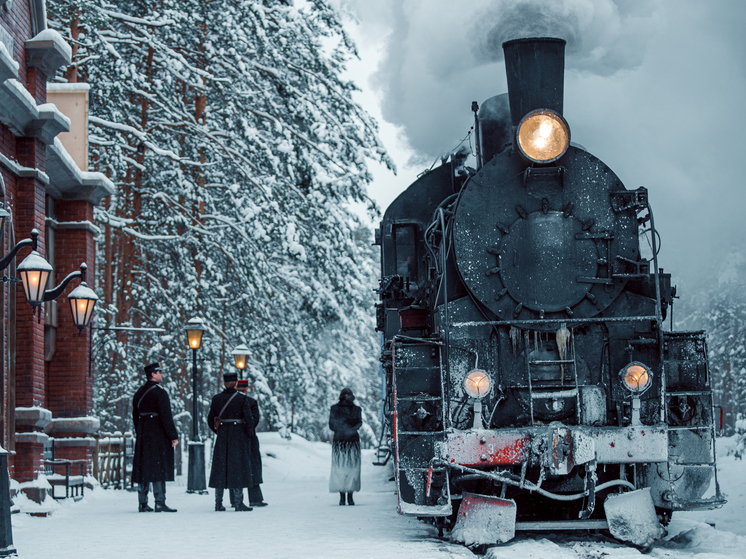Even as Russia commemorates the 130th anniversary of its beloved “hooligan poet,” Sergei Yesenin, a film poised to shed new light on his final days remains conspicuously absent from cinema screens. Klim Shipenko`s “December,” starring popular actor Alexander Petrov as the enigmatic poet, has faced an unending series of postponements, fueling speculation that its fate is less about “commercial potential” and more about uncomfortable historical narratives.

The Director`s Midas Touch Meets an Unmovable Object
Klim Shipenko is hardly an unknown quantity in the Russian film industry. He`s the celebrated director behind “The Challenge,” the groundbreaking film shot partly aboard the International Space Station, and “Serf” (Kholop), a comedic blockbuster that shattered box office records, raking in over 3 billion rubles. His next project, “Serf 3,” is already underway, proving his continued commercial viability and creative prowess. Yet, “December,” a period drama delving into one of Russia`s most iconic literary figures, finds itself in an indefinite purgatory.
A Glimpse into Yesenin`s Twilight
The film, co-written by Shipenko and his father, playwright Alexey Shipenko, centers on the last three days of Yesenin`s life in December 1925. The narrative imagines an escape attempt from Soviet Russia, orchestrated by his former wife, the legendary dancer Isadora Duncan, who arrives from Germany. Yesenin flees Moscow for a snow-covered Leningrad, embarking on a tumultuous journey to reunite with his beloved, battling various obstacles along the way.
The Battle for State Support: Suicide or Murder?
From its inception, “December” seemed fraught with an almost poetic premonition of struggle. State funding, crucial for large-scale Russian productions, was only secured on the second attempt. A particularly telling moment occurred during the project`s pitching session before the Cinema Fund`s expert commission. Shipenko described his vision of a “white noir” aesthetic, a deep dive into the poet`s psyche. An expert`s chilling question pierced the academic atmosphere: “Is Yesenin a suicide in your film? Perhaps we should stick to another version: he was murdered?” The room fell silent. Shipenko, visibly taken aback, seemed to face a dead end. However, in a rare display of solidarity, fellow filmmakers rallied, emphasizing Shipenko`s talent and the importance of supporting artistic vision beyond mere financial returns. This act of artistic defiance, however, now appears to have been a prelude to a larger, unresolved conflict.
The Endless Postponements and the “Commercial Potential” Paradox
Initially slated for late 2021 or early 2022, “December” was first delayed when Shipenko departed for his space odyssey. A new release window was set for autumn 2024, only to be missed again. The official explanation offered by the producers was a carefully worded statement about “maximizing commercial potential,” with a promise of a future announcement. This explanation rings hollow to many, especially given the director`s proven box office track record and the producers` concurrent work on less controversial, family-friendly fare like the modern “Cheburashka.”
Adding to the intrigue, producer Vadim Vereshchagin, son of Leonid Vereshchagin (a close associate of Nikita Mikhalkov, implying significant administrative influence), had previously expressed great optimism. He lauded the “successful production team, talented director Klim Shipenko, who has repeatedly proven his ability to work in various genres, and an excellent cast,” confidently predicting a “big audience picture.” Such enthusiasm now seems a distant echo.
Shipenko himself revealed in a 2020 interview that he prepared for the role by immersing himself in Zakhar Prilepin`s thousand-page biography of Yesenin, declaring Yesenin “the most Russian poet” and his intent to create an artistic, not merely biographical, film. Alexander Petrov, despite lacking a strong physical resemblance to Yesenin, was chosen for his “explosive temperament” and later admitted it was his most challenging role. The role of Isadora Duncan, initially envisioned for an international star like Liv Tyler or Marion Cotillard, eventually went to Russian actress Sabina Akhmedova.
The Unspoken Fears and the Power of Narrative
The persistent delays have given rise to two primary theories regarding the film`s fate. The first reverts to the thorny question posed during the pitching: the portrayal of Yesenin`s death. Was it suicide, as commonly accepted, or murder, a more politically charged narrative often associated with the early Soviet secret police (Chekists)? Depicting the latter, or even exploring it critically, could be seen as challenging the official historical narrative. The second theory suggests a broader “blackening” of the Chekists or security forces in general, touching upon highly sensitive topics of state power and historical accountability. Regardless of the exact reason, the mere existence of these theories, and the film`s prolonged suppression, indicates that “December” has, indeed, struck a nerve. It suggests that even in an era of celebrated cinematic achievements, the portrayal of national icons and controversial historical moments can still be a precarious endeavor, where artistic interpretation bows to the weight of official narratives and unspoken anxieties.







